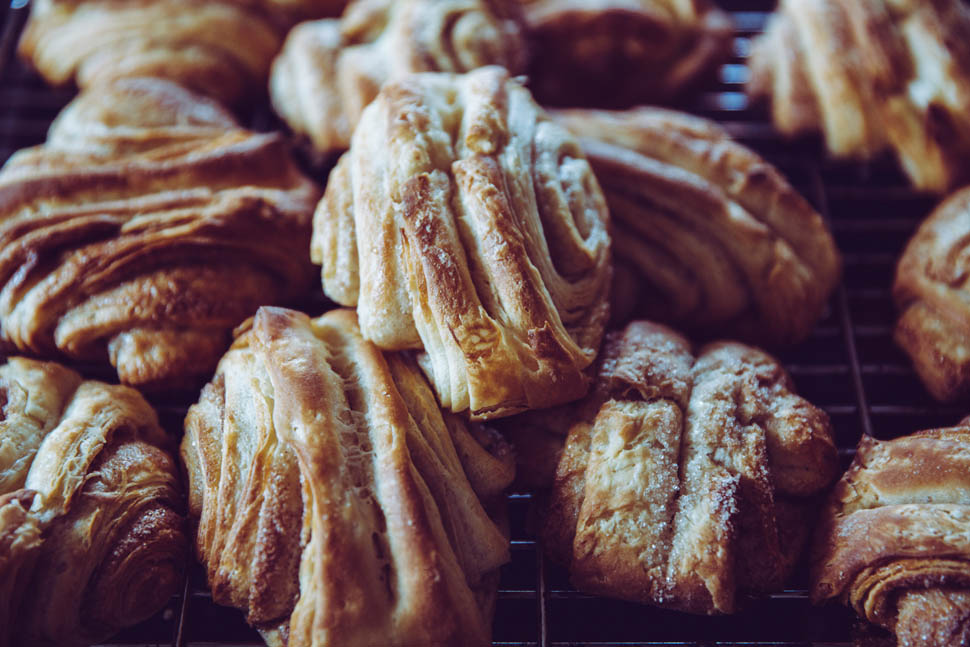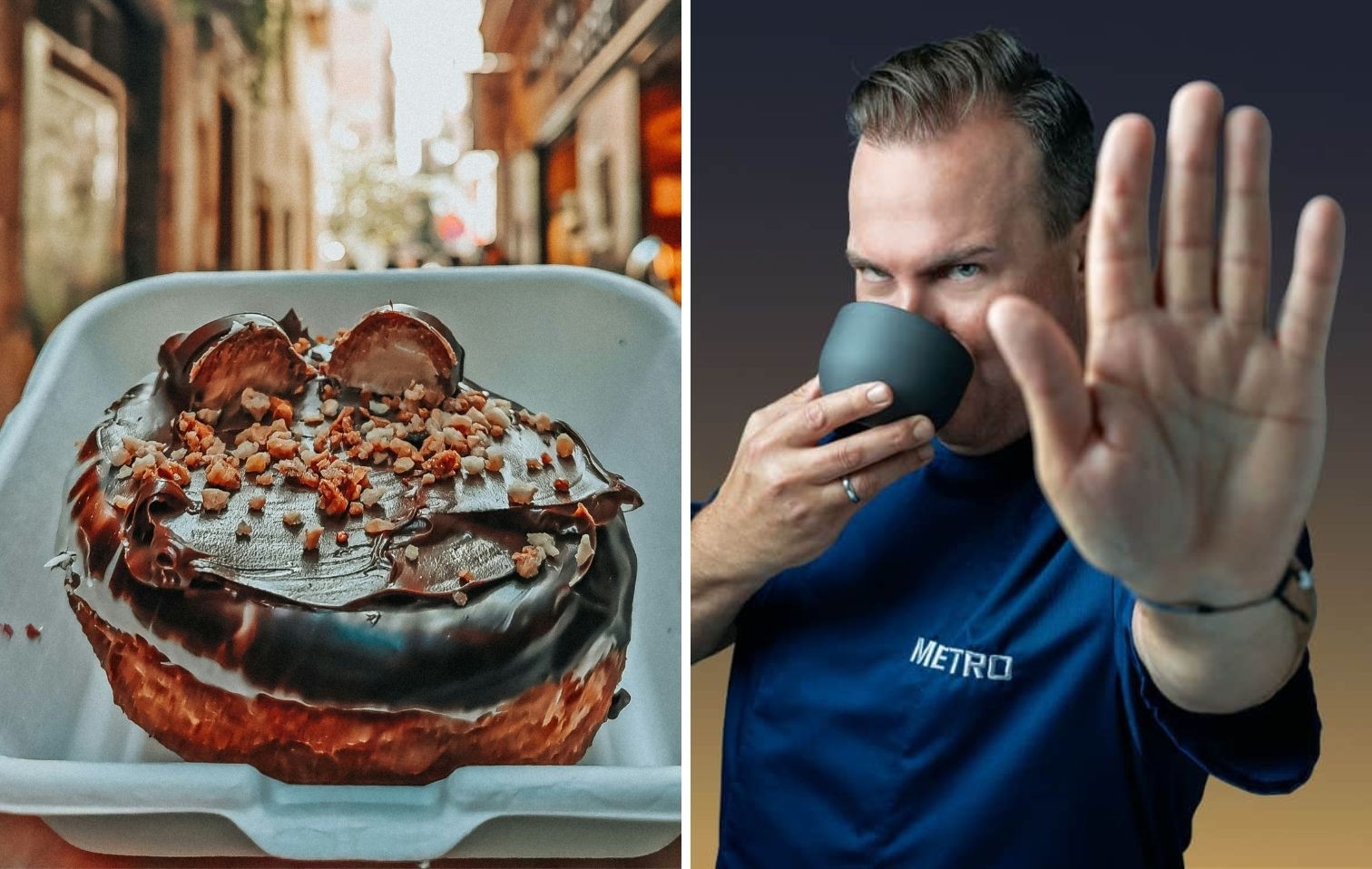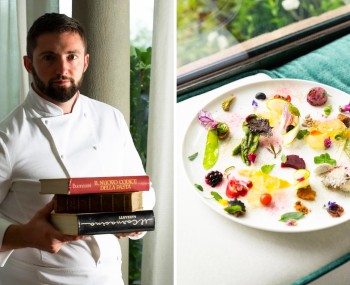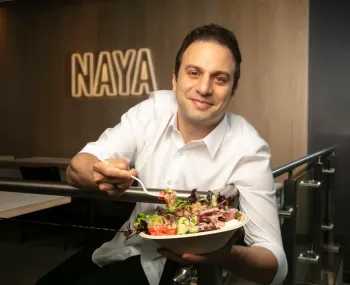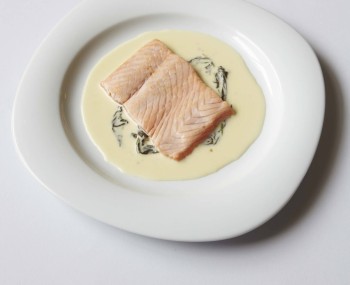For the award-winning German chef, chasing the fads of the moment is a waste of time. "Those who follow trends are always looking for something new and temporary. You have to create a product that works in the long run."
The news
Tim Raue, Germany's renowned Michelin-starred chef, is not one to be easily charmed by the culinary trends that pop up on social media. In a world where food fads are born and die with the swiftness of an Instagram post, Raue remains firmly grounded in his gastronomic principles, skeptical of the ephemeral phenomena that invade our digital bulletin boards, as Rolling Pin explains.
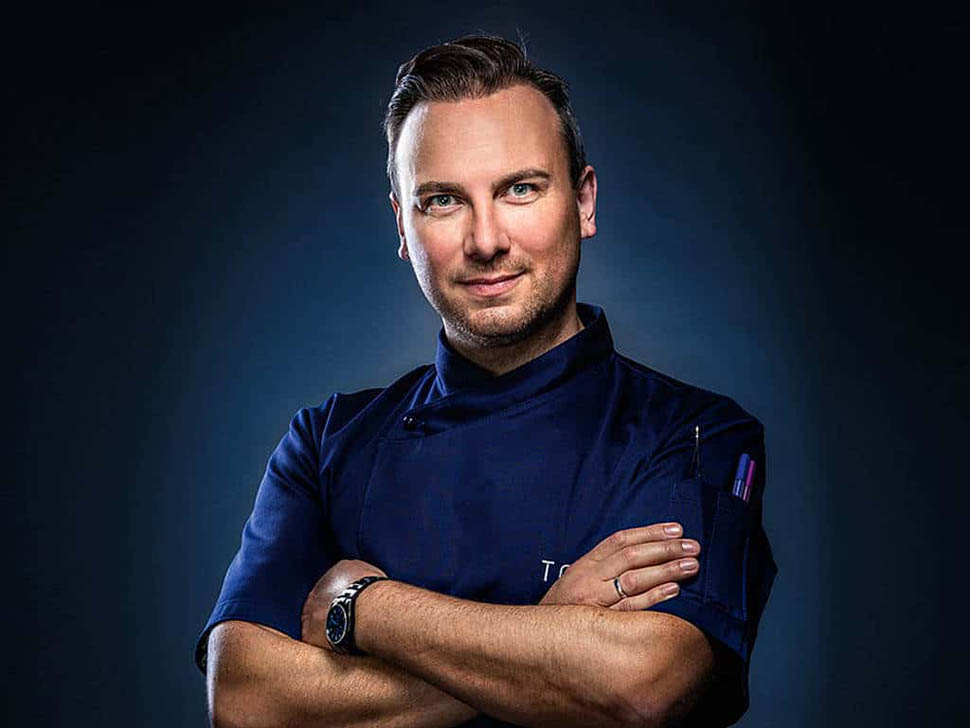
A prime example? Pistachio, the web's latest obsession, declined in every imaginable shape: croissant, tiramisu, pasta, cappuccino, and you name it. And while Nutella is starting to see green, certainly not from envy, pistachio cream continues to rage, conquering even the most exotic preparations such as "Dubai Chocolate"- a bar filled with pistachios and knafeh that has been making the rounds of the virtual world.
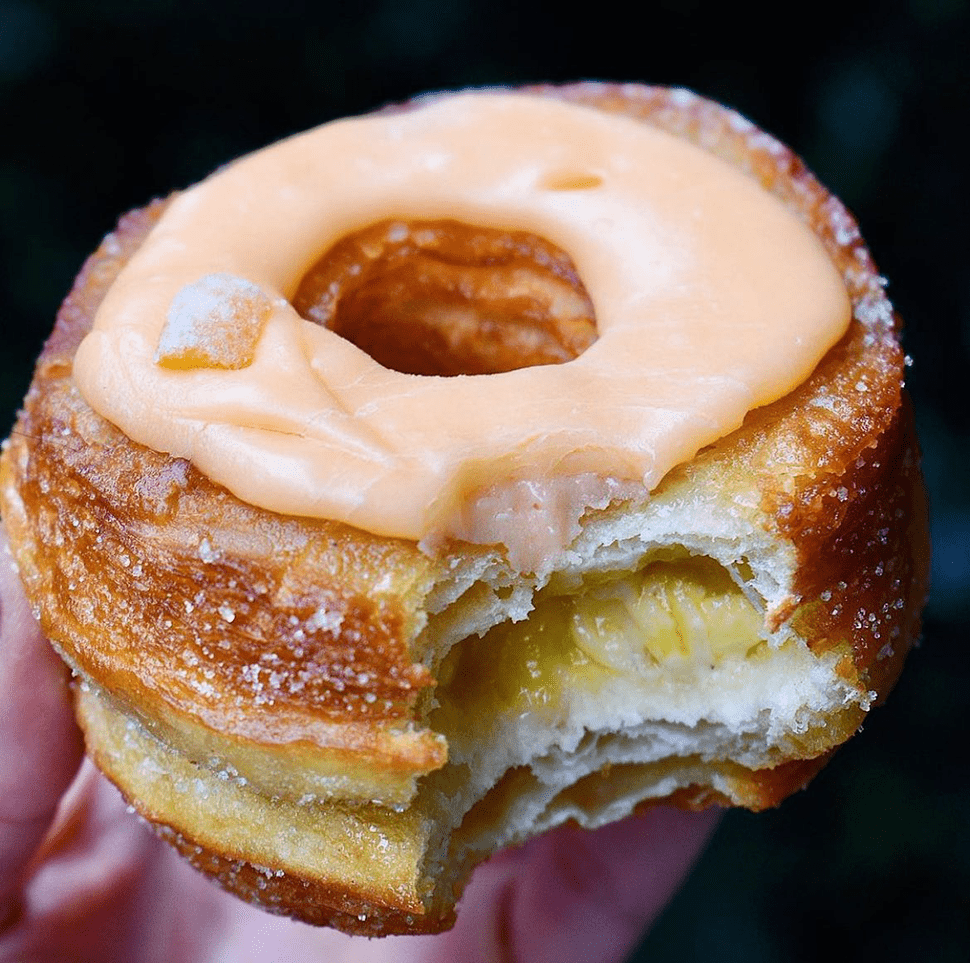
This leads us to reflect on how quickly a trend can explode - and just as quickly fade away. Take for example feta pasta or "Dalgona Coffee": both conquered the web with meteoric speed, but today they are almost forgotten, relegated to the corner of past culinary fads. And here Hanni Rützler, an expert on food trends, intervenes, pointing out that these phenomena are not static, but change and evolve with social and cultural impulses. Some die out, others become mainstream, while a chosen few succeed in integrating themselves into our daily lives, such as Bubble Tea or Poke Bowls. Yet, not everyone is convinced of the usefulness of these trends for gastronomy. Tim Raue, for example, has no intention of including a Crookie - a croissant stuffed with cookie dough - or a "Dubai Chocolate" on his menus.
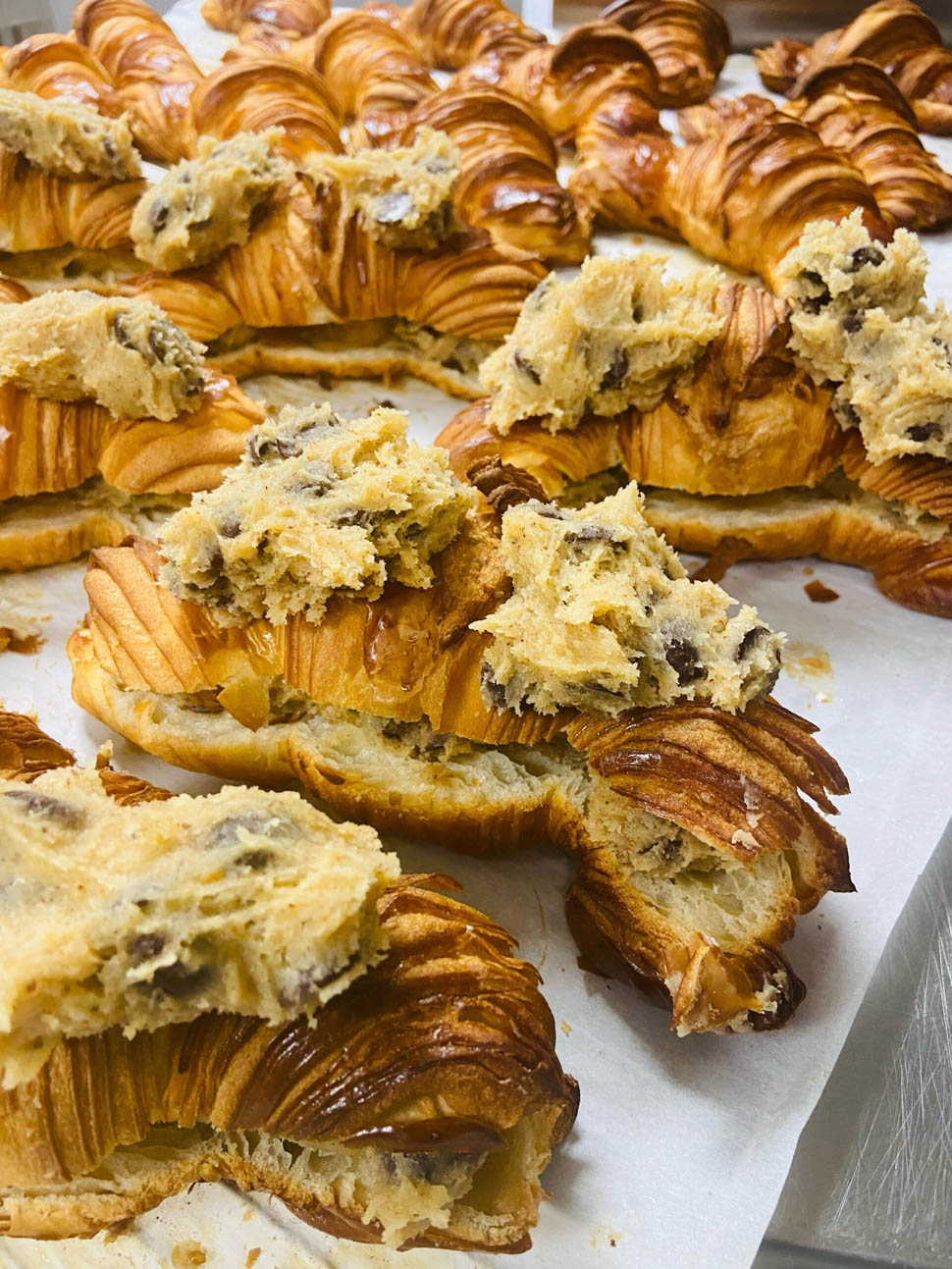
For Raue, chasing the fads of the moment is a waste of time. "Those who chase trends are always looking for something new and temporary," the renowned chef explains. "You have to create a product that works in the long run." Raue harshly criticizes the food trends that dominate platforms such as TikTok and Instagram, seeing them as often harmful to health. "An industrial donut covered in Snickers is pure garbage for the body," he states bluntly. His philosophy is clear: there is no need for these sugary, fatty excesses. "Anything that's trending in the culinary sphere on TikTok or Instagram usually sucks."
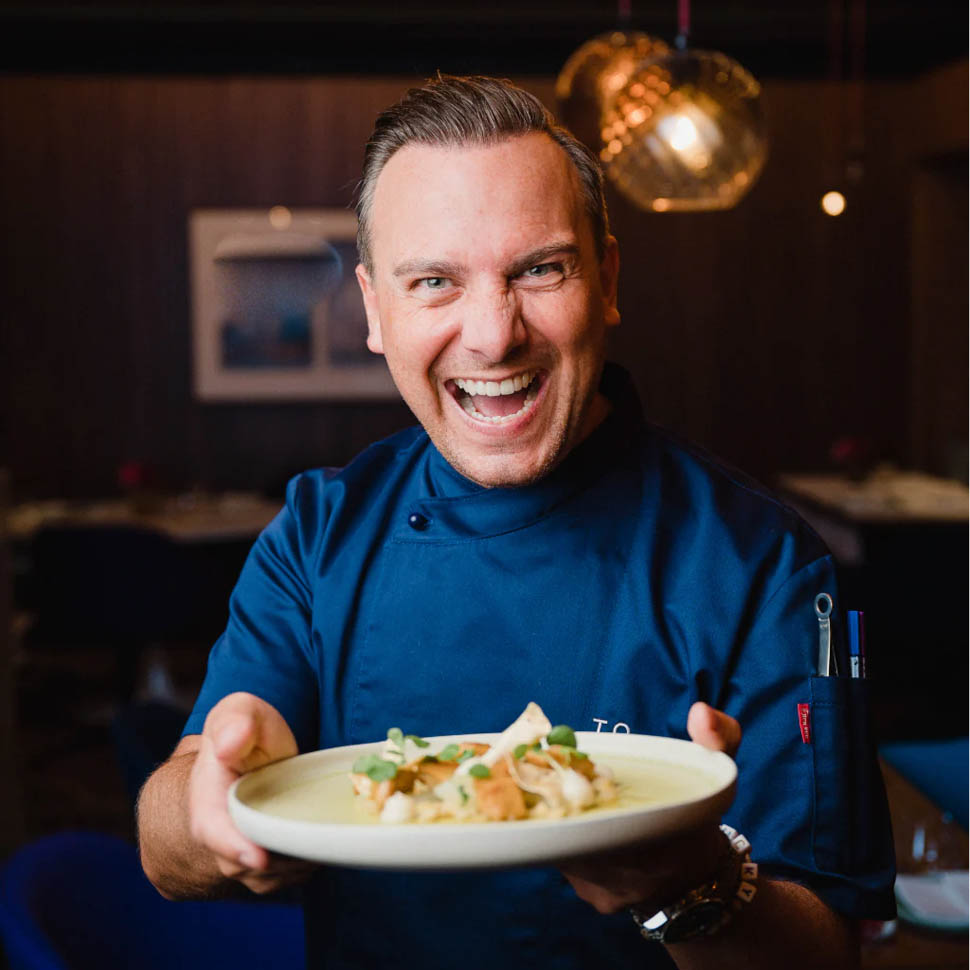
However, there is no denying that many of these trends have strong visual and sensory appeal, attracting millions of users with their sweet and crunchy promises. The charm of the Crookie, for example, lies precisely in this combination of textures and flavors, but will it ever be able to undermine the classic chocolate croissant? Tim Raue strongly doubts it.
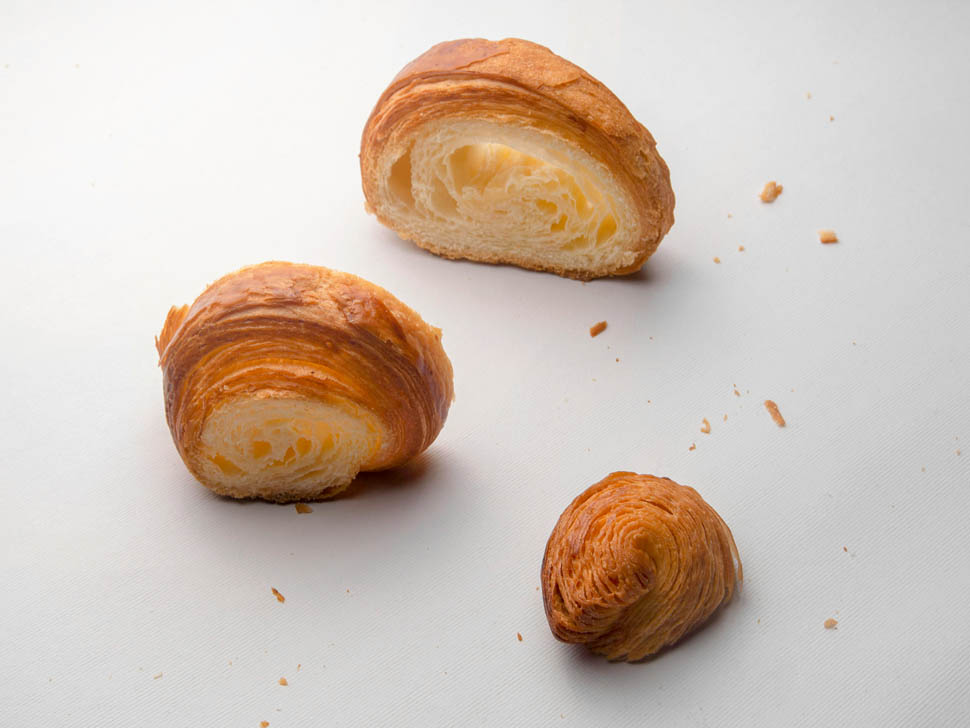
Foods that conquer the web often seem more appetizing than they really are. Although some trends may inspire new creations and business ideas, most end up being a one-time meteor, shining for a moment only to fall into oblivion. For culinary professionals, it is essential to think long-term, to create dishes that can last, rather than chasing the latest web hype. And on this, Tim Raue has no doubt: quality and sustainability must always prevail over the fad of the moment.
